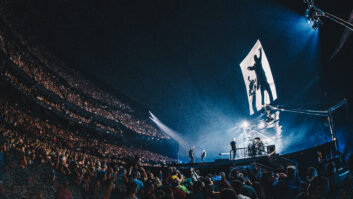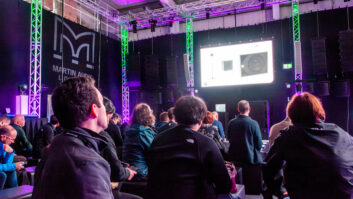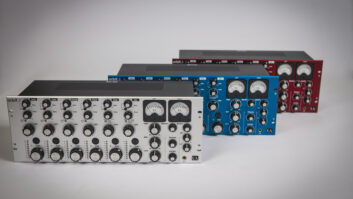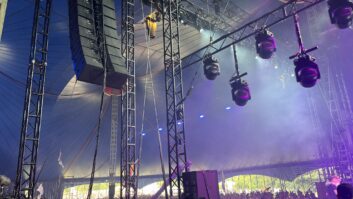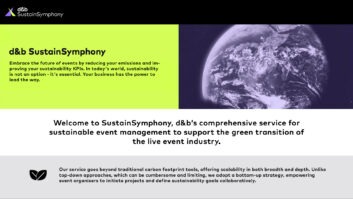In one of d&b Soundscape’s biggest deployments to date, sound designer Gareth Owen is using four DS100 signal engines and over 350 d&b loudspeakers to deliver an enveloping sound experience for the 40th anniversary production of Andrew Lloyd Webber’s Starlight Express at the Troubadour Theatre in London’s Wembley Park.
Owen, a respected and experienced sound engineer, describes the deployment as one of his “biggest and most ambitious sound designs yet”. The system was supplied by Cardiff-based rental provider Stage Sound Services, which made an additional investment with d&b in order to fulfil the specification.
 In the arena-style configuration, with performer action and audience listening zones in all directions, the challenges for coverage and coherence were considerable, but Owen says the system is coping well. The extensive loudspeaker setup includes Y-Series line arrays across the front plus some V-Series point source cabinets and a number of smaller additional speakers.
In the arena-style configuration, with performer action and audience listening zones in all directions, the challenges for coverage and coherence were considerable, but Owen says the system is coping well. The extensive loudspeaker setup includes Y-Series line arrays across the front plus some V-Series point source cabinets and a number of smaller additional speakers.
The production also sees Owen’s first ever use of d&b’s XSL-SUB, the small/medium format flyable cardioid subwoofer from d&b’s SL-Series, which he describes as “a massive step forward”.
Having employed d&b Soundscape on more than a dozen musical theatre sound designs, d&b says Owen has been integral to Soundscape’s development. En-Snap, the cue automation software which provides show control workflow features for Soundscape, is the result of a collaboration between Gareth Owen Sound and d&b.
Now in V3, one of En-Snap’s latest advances is the integration and support of advanced tracking systems. It’s a feature used to great effect in the current Starlight Express show to enable the accurate movement of vocal reinforcement, a unique challenge for this fast-paced production.
Owen said: “In what is a complicated room, with a complicated seating arrangement and performance area, we’ve achieved everything we could possibly achieve.”
He concluded: “I think we achieved exactly what we wanted to do. You know, it’s hugely important with all shows – and even more so with an Andrew Lloyd Webber show – to not screw it up. We don’t want anyone to say ‘it could have sounded better’. Luckily, no one did, and I’m very pleased with that.”
